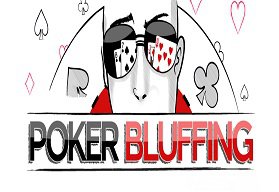Learn how to Bluff at Poker

Bluffing is a fundamental part of Poker, in fact, it's one of the main reasons that this is a game of skill rather than a game of chance. Playing online Poker removes some of the physical elements of bluffing, but that doesn't mean you can't fake it 'til you make it at an online casino, too. If you're new to Poker, and you too want to learn how to bluff, we've compiled some tips that will have you playing like a pro in no time.
Learn how to Read the Room
Especially if you're just getting started in Poker, you might want to start by taking it easy. It's unwise to start going wild with all in bets within your first few hands. Instead, play conservatively and read the behavior of your table-mates. Watch for players who fold on aggressive bets, and also for those who keep on raising. If the room is full of daring players who like to re-raise and up the ante, this might not be the best time to start bluffing.
Consistency is Key when Learning How to Bluff
Remember that the best bluffs are those that are most believable. A player who checks until it's time for the river, then goes on to bet big is basically turning on a beacon that identifies himself as a bluffer, and a bad one at that. If you haven't already been giving signals to the table that you're on to something when it comes to the flop, they are unlikely to start believing you've got strong cards, and that's a recipe for losing bets.
Learn your Opponents' Tells
Once you've spent some time looking at your opponents' habits at the table, you might start seeing some of their 'giveaways' or 'tells' as they're often known. Anyone who wants to learn how to bluff needs to learn to recognize when others are trying to. Watch for patterns, and take note when a player wins a hand with poor cards (if they end up showing them).
Disguise your Bluffs with False Tells
Unless you're quite experienced, you may not even know what your own tells even are, and unfortunately, they could be quite obvious to a veteran player at the table. Try to throw people off the scent by making obvious tells, even when you don't plan to bluff. A common technique is to drag out a decision on whether to raise or fold. This type of behavior can cause confusion and help to mask your real tells.
